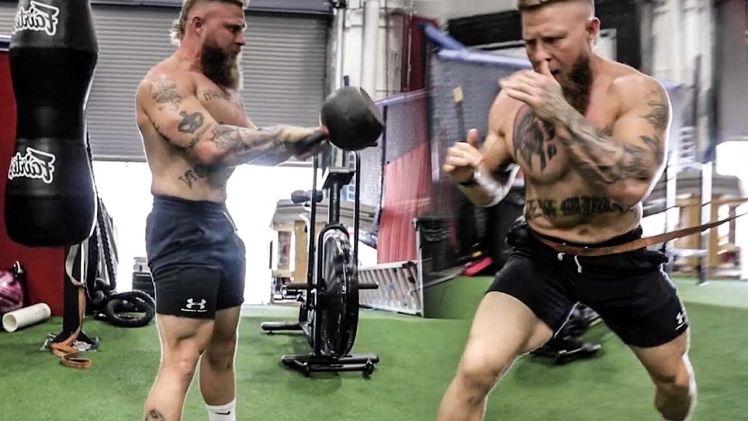Fitness enthusiasts in Thailand are turning to Thai boxing as a means to achieve their health goals. This dynamic martial art combines strength, agility, and endurance training like no other. Delve into the world of Thai boxing and discover how it is fueling the pursuit of fitness and sculpting stronger bodies across the nation.
Full-Body Workout:
Thai boxing’s diverse range of techniques, including punches, kicks, elbows, and knees, engage multiple muscle groups simultaneously, resulting in improved overall strength and muscular development. The continuous repetition of strikes and defensive movements during training sessions promotes muscular endurance, allowing individuals to perform physical tasks for longer periods without fatigue.
Resistance Training:
The resistance provided by pads, heavy bags, and sparring partners in Thai boxing builds functional strength as practitioners strike with force and resistance, challenging their muscles to adapt and grow stronger. The constant engagement of muscles during Muay Thai movements, combined with the need to maintain proper form and balance, leads to increased muscle strength and improved overall body stability.
Plyometric Exercises:
Thai boxing’s plyometric movements, such as jumping knees and high kicks, help develop explosive power and muscular strength, as the muscles are required to generate maximum force in a short amount of time. These rapid and powerful movements in Muay Thai boxing contribute to improved muscle fiber recruitment, enhancing overall muscular strength and power output.
Endurance Training:
Muay Thai’s intense training sessions, which involve continuous movement, striking, and defensive maneuvers, challenge the cardiovascular system, improving cardiovascular endurance and stamina. The demanding nature of Muay Thai boxing training pushes individuals to develop mental toughness and perseverance, allowing them to sustain physical effort for longer durations.
Increased Bone Density:
The impact and resistance generated from strikes during Muay Thai boxing training help stimulate bone growth and increase bone density, leading to stronger and healthier bones over time. The repetitive nature of striking techniques, such as kicks and punches, encourages bone remodeling and mineralization, contributing to improved skeletal strength.
Core Strengthening:
Muay Thai’s emphasis on rotational movements, such as roundhouse kicks and hooks, targets the core muscles, including the abdominal, obliques, and lower back, promoting core strength and stability. The constant engagement of the core muscles during Muay Thai techniques not only enhances power generation but also improves overall body control and posture.
Grip Strength:
The clinch work in Muay Thai boxing at Muaythai-camp-thailand requires a strong grip, as practitioners grip their opponents’ necks or arms to control their movements. This constant gripping and grappling build grip strength and forearm endurance. Additionally, exercises like heavy bag training, which involve gripping and striking, further enhance grip strength, making Muay Thai an effective way to develop hand and forearm strength.
Mental Strength:
Muay Thai’s demanding nature cultivates mental resilience and discipline as individuals push through physical and mental barriers, enhancing overall mental strength and fortitude. The mental focus and determination required during intense training sessions help individuals develop a strong mindset, which can be applied to other areas of life, promoting resilience and perseverance.

